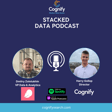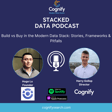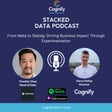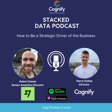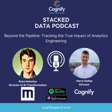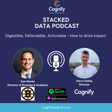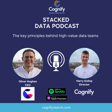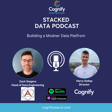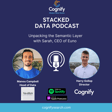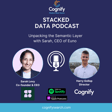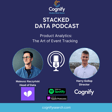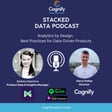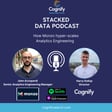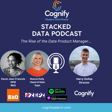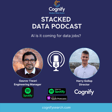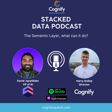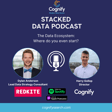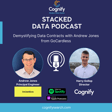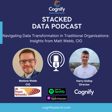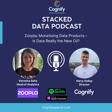
003 - Selling Data services to your Stakeholders
This week I’m joined by Leon Tang the VP of Data from @fresha. Leon shares his unique career, from frying fish and chips to building and leading data teams at some of the world's most well-known tech companies.
Leon stresses the importance of relationship building and business understanding as a key attributes to success in data.
We speak about how to make sure your data team is a driver of the business and not a support function.
I dive into how to excel in your data career and have impact on the business everyday!
🌐 What You'll Learn:
How to break from a “Senior” into Leadership
How to build your toolkit to succeed in data
How to foster a data driven culture to set your team up for success.
Top tips for interviewing and a successful career in data!
The Stacked Data Podcast isn't just about technology; it's about the stories, experiences, and lessons that drive innovation in the data landscape. Whether you're a seasoned data professional or simply curious about the future of data, this conversation offers a wealth of knowledge and inspiration.
Please give us a follow as we have lots more episodes coming!
We are always looking for feedback or topics you'd like to hear about. Please reach out!
